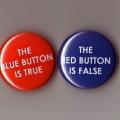276. Back to the Future: Foreknowledge and Predestination
Scotus, Ockham, and Bradwardine ask how we can be free if God knows and chooses the things we will do in the future.
Themes:
• M. McCord Adams and N. Kretzmann, trans., William of Ockham: Predestination, God’s Foreknowledge, and Future Contingents (Indianapolis: 1983).
• W.L. Craig, “John Duns Scotus on God’s Foreknowledge and Future Contingents,” Franciscan Studies 47 (1987), 98-122.
• W.L. Craig, The Problem of Divine Foreknowledge and Future Contingents from Aristotle to Suarez (Leiden: 1988).
• E.W. Dolnikowski, Thomas Bradwardine: a View of Time and a Vision of History in Fourteenth-Century Thought (Leiden: 1995).
• H.G. Gelber, It Could Have Been Otherwise: Contingency and Necessity in Dominican Theology at Oxford, 1300-1350 (Leiden: 2004).
• C. Normore, “Peter Aureoli and his Contemporaries on Future Contingents and Excluded Middle,” Synthese 96 (1993), 83-92.
• D. Perler, Predestination, Zeit und Kontingenz (Amsterdam: 1988).
• G. Leff, Bradwardine and the Pelagians (Cambridge: 1957).
• C. Schabel, Theology at Paris, 1316-1245: Peter Auriol and the Problem of Divine Foreknowledge and Future Contingents (Aldershot: 2000).







Comments
God's foreknowledge
Hello Professor Adamson.
It seems to imply that (pre) knowledge entails the necessity of outcomes of such knowledge independent of the will of the agents pertaining to whom such knowledge was foreseen. And such is only possible in terms of God - if it is attributed to Him the capability of Actually Knowing the future, and Him also being the Ultimate Cause who actualizes potencies.
To me, at least, pre-knowledge of God does not make Him the Agent and us mere tools that are being enacted to actualize what He knows, but we are also the agents who would have performed the way God Knows what we would have performed: here, I mean to say even though God is the Ultimate Cause of our actions, He simply actualizes what we always would have chosen to BE actualized, even though He had preknowledge of such. I believe in this manner we are the producer of God's preknowledge of our fate, and He simply actualizes such for us.
In this manner, God's Compassion also becomes meaningful because His compassion would be ADDITIONAL and independent of whether we need such compassion or not.
In reply to God's foreknowledge by Ajmal
Foreknowledge vs predestination
Right, perhaps I should have made this clearer in the episode, but the distinction you draw here is essentially that between God merely foreknowing what I will do, and predestining what I will do (by in effect choosing what will happen, because He decides whether to give or withhold grace). I agree that foreknowledge by itself doesn't involve the foreknower being the agent - actually all it seems to do is guarantee that there is a present truth about the future, since how God can know what will happen if there is as yet no truth of the matter? (I here ignore possible ways out of this e.g. invoking God's timelessness.) By contrast, if God predestines us, then it is more plausible to say that He is the true agent, though of course Bradwardine and others who defend a strong doctrine of predestination would deny that this follows.
A lot of the same issues come up in Islamic theology too by the way so if you are interested in the topic you could listen back to the episodes on e.g. the Asharites.
In reply to Foreknowledge vs predestination by Peter Adamson
Appreciate the reply.
Appreciate the reply.
Doesn't predestination imply the priority of the pre-knowledge of the Agent? In other words, if God predestined us, it must have been based on some facts whose knowledge MUST have been possessed by Him. Otherwise His predestination would simply be accidental fatalism which, when contrasted with God's nature - being absolute - will be contradictory to His nature.
This is where my initial input was directed: that THIS foreknowledge of God must be due to our own reality being the CAUSE of His foreknowledge which led to Him actualizing the fatalism which is none other than our OWN wills actualized by Him. And in doing so, His Grace would be meaningful; for example, to help someone from wrath of his own self and bless with His Mercy, etc...
Ash'ari v. Mu'tazila?
Ash'ari v. Mu'tazila?
Sigh...
Great discussion, I feel like that's up there with the best I've ever heard those questions addressed.
Could do without the (thinly) veiled political commentary.
In reply to Sigh... by Daekar
Sighing
Good, glad you liked the episode. It was fun to work on. The thinly veiled political commentary was mostly supposed to be funny, but if it annoys Trump supporters too, I can live with that. I can guarantee you that in the great scheme of things I am a lot more annoyed than you are.
A Prophecy
Fascinating entry into the series. If there's one thing I can predict about my own future, it is this: I will continue to loathe determinism, and remain unswayed by its arguments.
Foreknowledge plus Free Will is a contradiction
If foreknowledge doesn't entail that God predestines my choices, it still entails predestination.
If God has foreknowledge of all of my future choices, then he certainly knows what I'm going to choose to eat for dinner tomorrow (or whether I'll choose to eat dinner at all). Being omnipotent, he also has the power to tell me today what my future choice is going to be. Assume that he does tell me today. Can I now change my choice while there's still time? If I can't, then I don't have free will. If I can and do change it, then God was misinformed.
Also, putting the word "predestination" aside for a moment, foreknowledge still presupposes that God has caused all of my choices, at least if we assume that God's omnipotence includes the capacity to have created any of a number of different universes in which I made any of a number of different choices. (If we're going to make the extreme assumption that God knows the future, then there's no reason not to make the equally extreme assumption that he has such universe-creating ability.) Knowing what all of those potential choices are, he chose to create this particular universe, with all of the specific choices that I make in it. Call those choices "free" if you will. But if God thus decided ahead of time how I was going make every single choice in my life, then he caused those choices without any input from me. I call that predestination.
In reply to Foreknowledge plus Free Will is a contradiction by Bob Stringer
Predestination
Right, the points you're making are precisely the ones that came up in this 14th c debate and later on, in particular what you say in the last paragraph is what was called "middle knowledge" (God's knowledge that if He creates me, or creates me in a certain world, I will act in such-and-such a way) in the Jesuit tradition. We'll be getting to that soon as part of the Reformation series.
I think what you are laying out here is basically just the puzzle that needs to be solved; as we've seen several times (in this episode and the Boethius podcast for instance) and will see further in future episodes, various solutions were tried so you would need to engage with each one to show how it doesn't work. But you've given a clear statement here of the initial problem.
Similar concerns
Hello Professor,
I have listened to every episode multiple times and read some of the literature recommended, but I may be missing the one that will help me to understand why you feel that a grasp in contingency, in the way that you've described Scotus and Ockham holding it, is a good approach to solving the age old determinism argument. Is there one of the recommended readings to focus on in particular?
It can be from either tradition, if one helps clear it up better. Something doesn't seem to me to be contingently true today. We can say something about tomorrow will have a truth value that is contingent upon what occurs tomorrow. But to say that the truth value about tomorrow exists today, is not contingent. It would be determined, which is what it means to me to say that there is a truth value today for something to occur tomorrow. It is not contingent, nor is it possible for something else to occur. (If it has a truth value today.) If that was correct, as you seem to indicate that Scotus believed, then we could not have "otherwise" occur; the outcome is known now and thus it is fixed. This is what the truth value is, otherwise, it doesn't exist. The truth value is indeterminate because until it occurs there is no truth or falseness. In a way, it is less existent than your sister. We cannot know anything about a truth value today for an occurrence tomorrow, unless there is a determination. If that's wrong, I understand none of your examples and could really use some advice on which article will help the most in correcting my misunderstanding.
In reply to Similar concerns by Dave Lavery
Contingency
From the list above you could try reading the treatise by Ockham itself, which is pretty clear and forcefully argued; or the book by Hester would be a good place to start.
I certainly feel the force of your intuition: if it is still "open" to me to do X or not do X tomorrow how can it be true already now that I will do X? And one could certainly just say, fine, therefore there are no truths about contingent matters of the future. (Don't get hung up on the word "contingent": here it doesn't need to mean "contingent on" anything in particular, it just means neither impossible nor necessary.)
But I think one can say that there are, once we bear in mind that (a) the fact that there is a truth about whether I will do X doesn't mean that anyone knows whether I will do X, so it is still open as far as our knowledge is concerned, and (b) the truth about the future is contingent. Compare truths about the past: Socrates died of hemlock is true, but contingently so; yesterday 2+2=4 was true, but necessarily so. Similarly for statements about the present: it's contingently true I am writing this now, necessarily true that 2+2=4 right now. And thus I would say that the same could apply to the future.
Thanks so much for your…
Thanks so much for your response. I just ordered a copy of Prof. Gelber's (Ed.) book. I get hung up on b). Contingency doesn't seem to make sense to me still. Sure, Scotus is correct that I can vote for one candidate while I'm voting for the other, as long as I have the robust power to do otherwise. I can't understand yet why something could be possible to occur or not, if something knows exactly what will occur, even though I do not. Power seems to be gone to do otherwise.
In reply to Thanks so much for your… by Dave Lavery
Advance knowledge
Well, maybe look at it this way: suppose I see you right now, turning left instead of right. I know you are doing it as I watch you do it, but my knowledge is not influencing you. So what I know is that you are using your power to go left, instead of right.
Now, for the future it could be the same: some omniscient being knows that you will use your power to turn left one minute from now. But that knowledge does not deprive you of power of choice, to the contrary, the hypothesis requires that you will retain that power, since what it knows is precisely that this is what you will freely choose to do.
Actually you can leave knowledge out of it, at least to start with, and just focus on truth: there is a truth now that you will (freely, without compulsion etc) turn left and not right, five minutes from now. Maybe nobody knows that truth but it is still already true. Where exactly is the contradiction in that?
Determinism
Hello and thank You, dear professor...
I am not a academic graduate, and I am only a woman very interested in philosophy...I take every opportunity to express myself. I maybe able to change myself for a better life.
I wanted to say that isn’t it possible that posing this question: “Is it Choice or Determinism” in itself a choice...a kind of vote ...
Those who leave the subject and ask no question are adopting a Deterministic approach...
Those who ask the question, no matter what their answer will be are actually believing in Choice...
Thank you for your time ...and for all the knowledge you share...
best regards Mojde
In reply to Determinism by Mojde
Asking the question
That's a good point, that even asking or thinking about whether determinism is true is itself an action, which must either be determined or not. But determinists and libertarians (= people who reject determinism) can both explain that on their rival theories: determinists would say that someone has been determined to think about this question, or not do so, and to come to a certain view about it; whereas libertarians would say that people can choose to do all this without being determined. So I don't see that this case poses any special problem for either group.
Add new comment